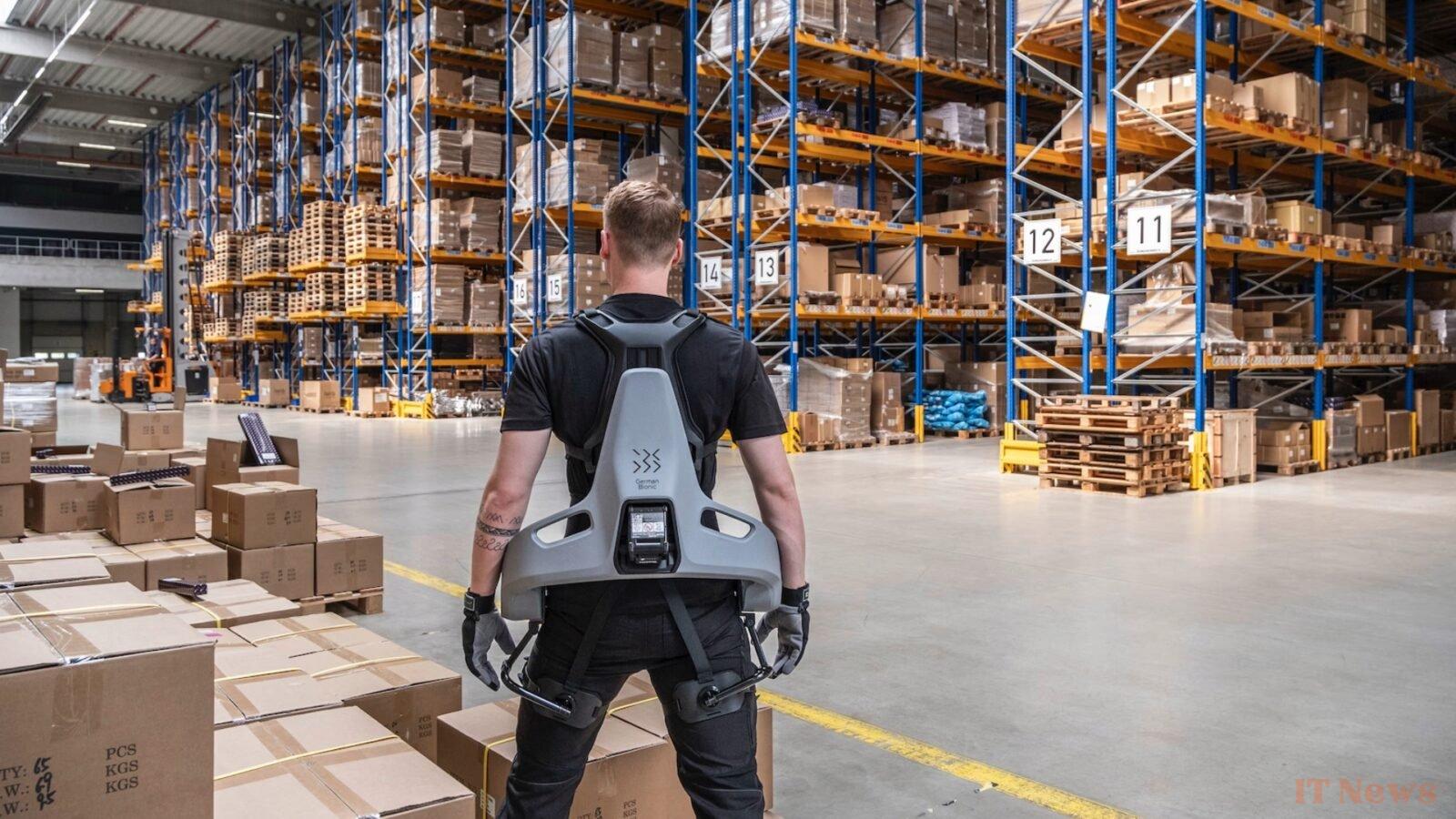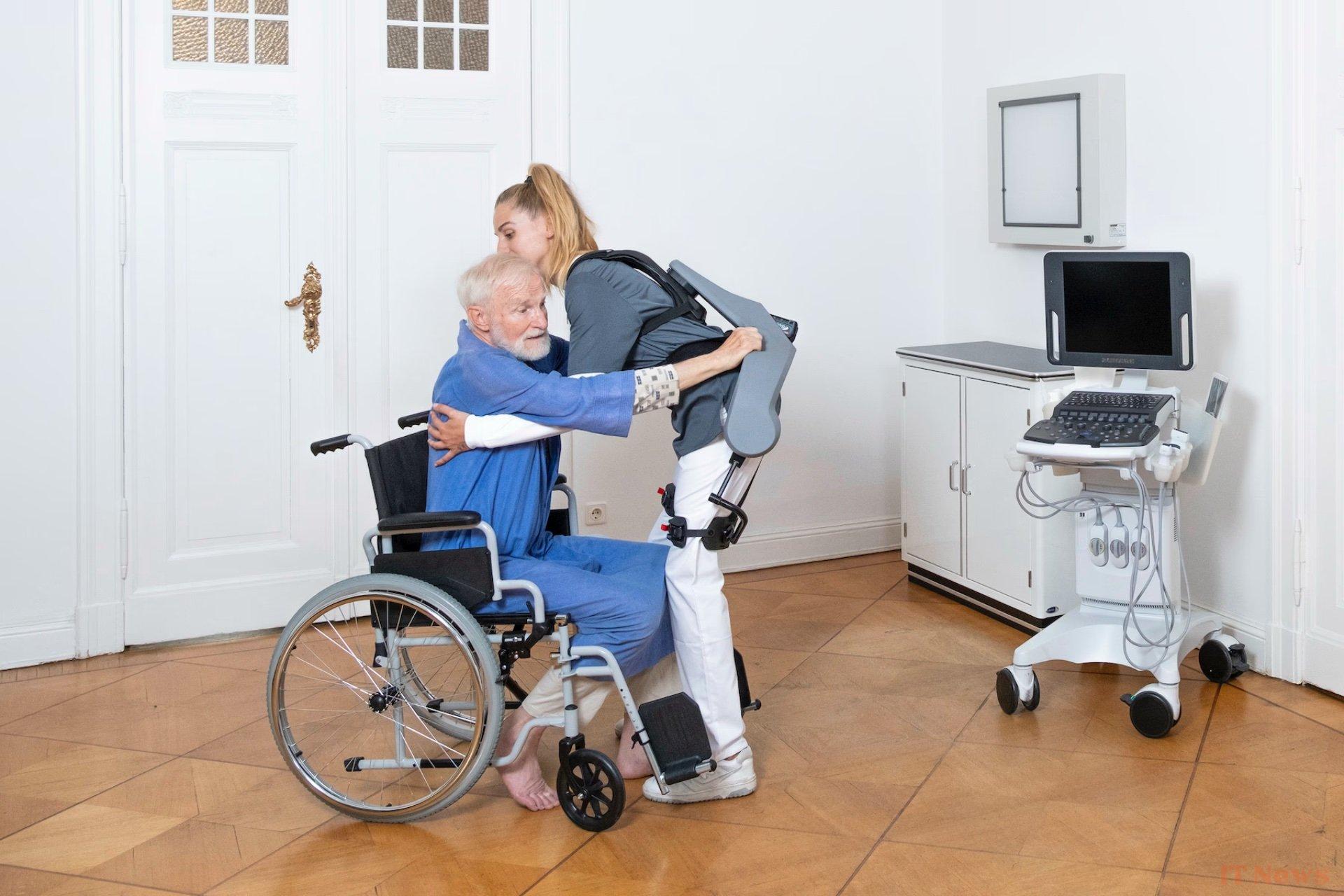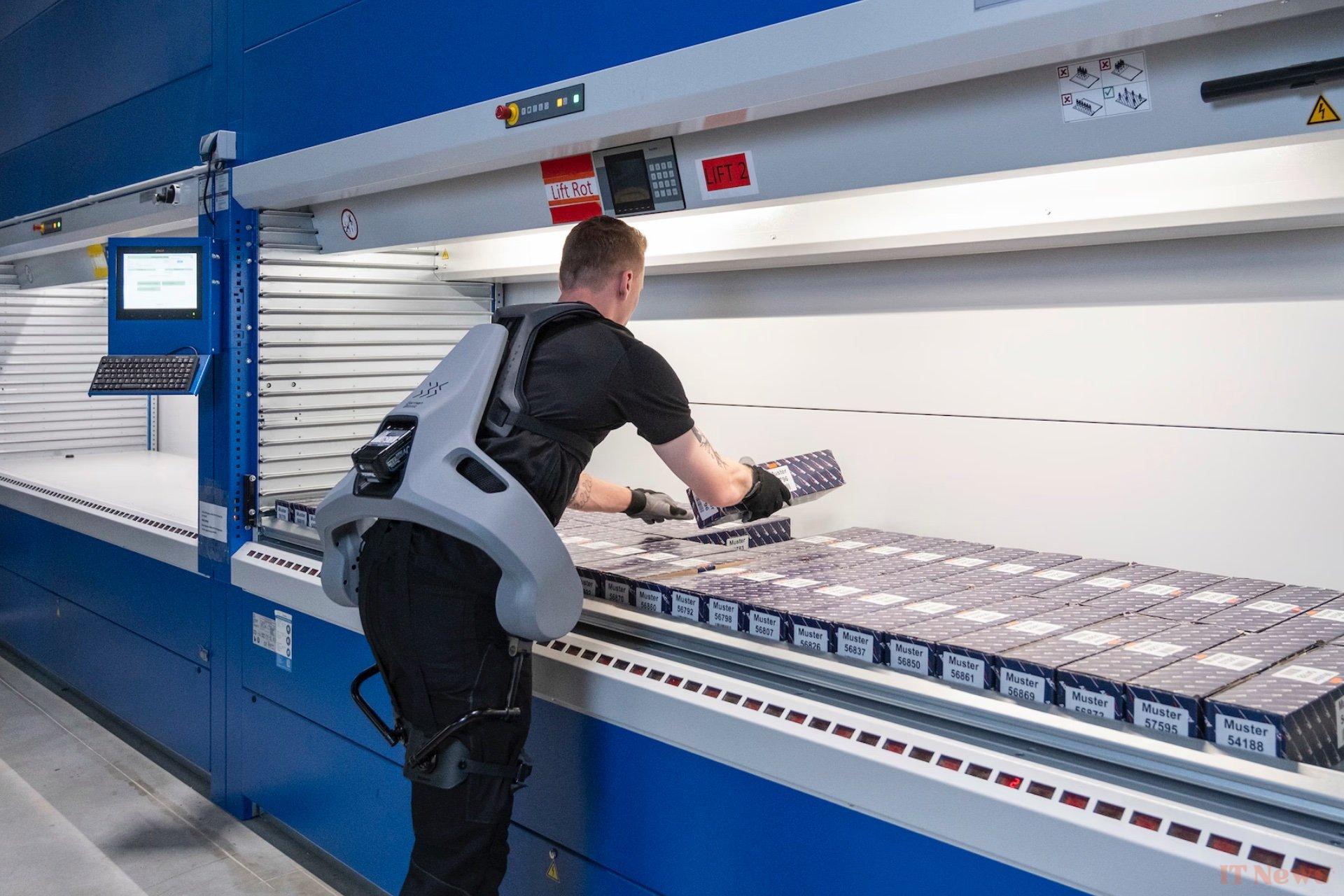Presented as a world first, Exia is the latest product from the German company German Bionic, which specializes in wearable work assistance technologies. This new active exoskeleton is based on "augmented" AI and promises instant adaptation to its user, whether in industry, logistics, hospitals, or even mass retail. The device stands out for its ability to learn the wearer's movements thanks to massive data collection—several billion real movements captured in different professional environments.
An exoskeleton designed for all uses
"Exia doesn't just react or think: it actually learns," insists Armin G. Schmidt, CEO and co-founder of German Bionic. The idea is simple: each movement feeds a database that allows the system to continuously adjust itself to optimize its assistance. Whether lifting, walking, or bending, Exia provides real-time assistance, with a lifting capacity of up to 38 kilos.
Exia incorporates an adaptive motor and redesigned control software, coupled with a mobile application — German Bionic Connect — that allows you to track performance (weight lifted, number of steps, time of use, etc.) and adjust the settings according to the user's needs. An onboard "digital twin" identifies risky movements and encourages the adoption of better postures, in order to limit musculoskeletal disorders.
The other pillar of the system is based on the German Bionic IO cloud platform, which centralizes the collected data to produce statistics, manage fleets of exoskeletons or offer ergonomic advice. Thanks to over-the-air software updates, Exia also improves remotely, without the need for on-site technical intervention.
The objective is twofold: to relieve the physical strain on workers and to make demanding jobs more attractive in a context of labor shortages. "The best feedback we got was from a worker who told us he could finally play with his kids in the evening, without being drained from his day," says Armin G. Schmidt. The device will be unveiled to the European public at Vivatech Paris from June 11 to 14. Since its creation in 2017, German Bionic has made a name for itself with its connected exoskeletons. The company, which has offices in Berlin, Tokyo, Paris, and Boston, presents itself as a pioneer in the wearable robotics sector. With Exia, the idea is to push the integration of artificial intelligence into physical assistance even further.





0 Comments